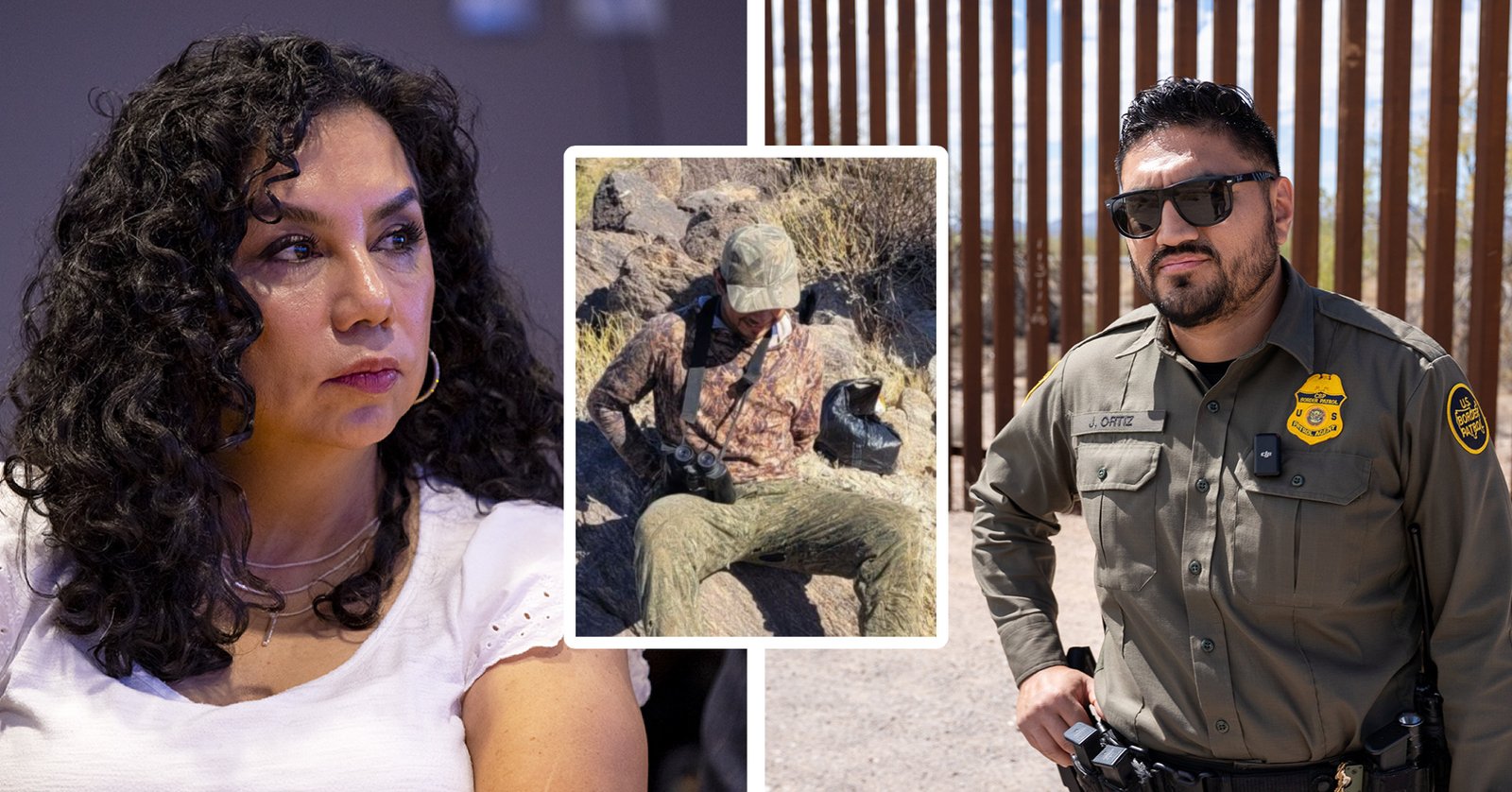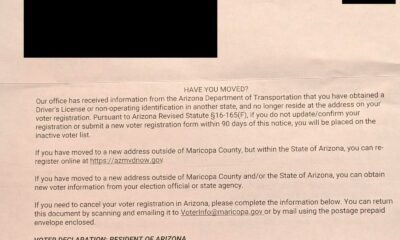arizona
Maricopa Residents to Decide on Martinez’s Controversial Terrorist Label for Drug Cartels

In March, InMaricopa reported the arrest of a suspected Sinaloa Cartel scout in the mountains near Maricopa, generating significant public interest with over 66,000 readers engaging with the story.
Now, a resolution co-sponsored by state Rep. Teresa Martinez aims to put a measure on the ballot that would allow Arizona voters to classify such operatives as foreign terrorist organizations under state law.
Lawmakers assert that this classification is necessary for public safety. However, critics caution that it could result in civil rights violations and complications with federal immigration policies.
This legislation, known as House Concurrent Resolution 2055, has been approved by the Arizona Legislature and will be featured on the ballot for the November 2026 general election. If passed, it would enable the Arizona Department of Homeland Security to categorize transnational cartels as terrorist entities, providing law enforcement with additional tools to combat these organizations.
Rep. Martinez, who represents Maricopa, cited an uptick in cartel-related violence and drug trafficking as the catalyst for this initiative. “These cartels are not boy scouts,” she stated emphatically. “They traffic fentanyl, women, and children, and they kill people. They are terrorists, and we should treat them as such.”
Martinez believes this measure would clearly differentiate between ordinary migrants and cartel members during law enforcement actions. “If someone is coming here to work and raise a family, they will be treated differently than someone tied to a gang,” she continued, highlighting the risks associated with cartel affiliations.
The move follows Gov. Katie Hobbs’ veto of similar legislation last year, making this a direct appeal to voters to circumvent gubernatorial opposition. “Why send it up just to get another veto?” Martinez questioned. “Let the people decide if they want these cartel members treated like five-year-olds.”
Martinez emphasized that the measure also serves as a precaution against potential shifts in federal immigration policy. “The Democrats want open borders,” she argued, indicating that the legislation is a safeguard irrespective of future administrations.
No organized campaign has yet emerged to support the measure as the election approaches. Martinez speculated that such efforts would likely develop but not under her direct involvement.
Concerns from civil rights advocates loom large, with fears that this state-level designation could lead to racial profiling and unjust detentions. They argue that existing federal laws adequately address the designation of foreign terrorist organizations, warning that a new state-level classification could create confusion and legal entanglements.
Lynn Marcus, a director at the University of Arizona’s Immigration Law Clinics, noted that state definitions of terrorism would not affect federal enforcement. Congress, she explained, maintains its own criteria for labeling terrorist organizations, which differ from those proposed in this Arizona bill. The implications could extend beyond just cartel members, potentially ensnaring innocent individuals.
Moreover, Marcus raised alarm over the proposed definitions, suggesting they could mislabel parents crossing borders for humanitarian reasons as members of a “drug cartel” and, therefore, as terrorists. “The law makes distinctions between profit-driven criminal activity and altruistic actions,” she clarified, suggesting that the impact of the proposed legislation could reach far beyond its intended targets.
The Arizona measure mirrors moves in other Republican-led states, including Texas, Florida, and Michigan, which have similarly sought more aggressive actions against transnational criminal organizations. The debate surrounding this resolution continues to highlight the complex intersections of public safety, civil rights, and immigration policy.


















